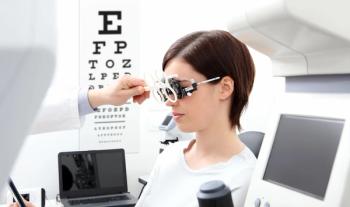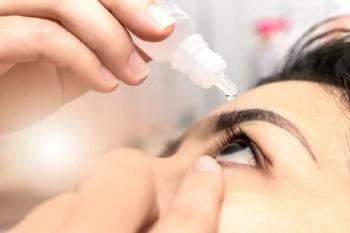
Going locum
I have a simple message to share with any ODs contemplating retirement: Sell your practice before either it dies or you do. I consider myself fortunate to have sold my practice sooner than I had anticipated; only much later did I realize it was at exactly the right time.
I have a simple message to share with any ODs contemplating retirement: Sell your practice before either it dies or you do. I consider myself fortunate to have sold my practice sooner than I had anticipated; only much later did I realize it was at exactly the right time.
I started my practice in 1964 and built it into a state-of-the-art solo private practice before I sold it 36 years later in November 2000 to a new graduate of SCO. In retrospect, selling my practice before it was in decline or before I was in poor health was one of the best things that I ever did.
My locum tenens practice
After selling my practice I made a decision to start my own locum tenens optometry practice. (Locum refers to someone who provides professional optometric or other services on an irregular basis to other optometrists or other professionals.) Locum Life, a magazine dedicated to locum tenens physicians, lists more than 70 healthcare providers and only optometrists and ophthalmologists are those listed in the ophthalmic arena. I decided to start my own locums practice independent of any agency. I call it “Your On-Call Georgia Optometrist-On call for you, always.”
In the 10 years I have been doing this, I have worked in more than 100 optometric practices in Georgia, many a few dozen times. When I started this model a decade ago, I knew of only one other Georgia optometrist who “floated.” Since then I have seen this mode of practice grow here in Georgia. Among those are private practice ODs looking to supplement their income. I work the entire state of Georgia, and my fees vary as I take into consideration travel time and expenses, such as gasoline and accommodations. The minimum per diem I charge is $500 for an 8-hour workday with a 1-hour lunch break.
Locum tenens practice hints
If you decide to go this route, you will find yourself in offices where the type and quality of equipment will vary. I learned early on to take a few things with me from office to office:
- An ophthalmoscope (I like my own. Plus there have been times when the only one in an office expired and there were no replacement batteries).
- Sample meds. I like to have my own available
- An Amsler grid. A simple test that can be diagnostic
- A portable IOP device of your choice
- A Tyler's QuarterlyContact Lens Guide for prescribing
- A vertex conversion chart
- Saline for irrigation (I find that many offices have only sample disinfection solutions they use for irrigation)
- A pupillometer (Some offices do not have one, and I am very picky about monocular PDs with my spectacle Rxs )
- A penlight. Some offices do not have a transilluminator
Don't wait until your practice is declining, your patient load is down, and the practice income has dropped too much for you to sell your practice. If you are independent, realize that you won’t be getting a pension, so you must invest and save for retirement or you will find yourself in a jam at a bad time. And, if you are so inclined, consider a locum tenens arrangement if you wish to continue to practice the profession you love.ODT
Newsletter
Want more insights like this? Subscribe to Optometry Times and get clinical pearls and practice tips delivered straight to your inbox.
















































.png)


